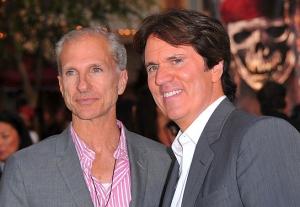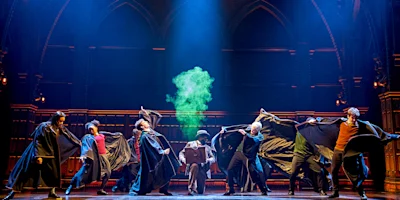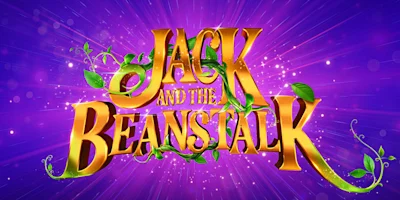
Rob Marshall and John DeLuca - Interview
Following our review of the film adaptation of Stephen Sondheim and James Lapine's 1987 musical Into the Woods, we caught up with the director of the film Rob Marshall and producer John DeLuca to get an inside view on how the stage to screen adaptation worked, including the role of Sondheim and Lapine in reworking the show for a new medium.
Rob Marshall is an Oscar winning director, known for directing the films 'Chicago' (2002), 'Memoirs of a Geisha' (2005) 'Nine' (2009) and 'Into the Woods' (2014). On Broadway, he has worked on 'Kiss of the Spiderwoman', 'Damn Yankees', 'She Loves Me' and 'Cabaret'.
DOH: Dom O'Hanlon
RM: Rob Marshall
JDL: John DeLuca
DOH: Taking a title as beloved as Into the Woods, did you feel the pressure to make the film appeal to both theatre fans as well as the 'mass market', and how did that affect your work?
RM: The key element for both of us was to have James Lapine write the Screenplay and have Stephen Sondheim work with us throughout. So when you have the original creators working with you there is a sense of comfort and also the knowledge that its integrity will be maintained throughout whilst still making sure you're reimagining it as a film. I think the biggest disservice you can do to a musical on stage when you're making it as a film is not reimagining it as a film, as it's just not going to work, because what happens is you end up doing the stage piece a disservice. It would be much easier to just film what's on stage - believe me - but it doesn't work like that. There is a pace issue on stage that's completely different to film. Storytelling is different - things that are too presentational don't work - on stage you can speak to an audience and you can break the fourth wall - those are stage conventions that don't work on film. Having them with us was the key. Many times we found ourselves suggesting, holding on to something actually, that they actually wanted to cut.
JDL: We were the ones that were saying "No no, we don't want to cut this!"
RM: They were incredibly flexible and understanding. Stephen Sondheim loves film, LOVES film. He understands it's a different medium so that was really helpful.
JDL: We didn't think of result - we only thought of keeping the story in tact. Using children for example was really important particularly to Rob. It wasn't for reasons, as people have asked such as marketing - it was because it's a film about parents and children and so that aspect was very important. We never thought of the result - we thought of story. How can we make this story work on film and still have the humour and the light hearted amusing bits but still get the message through.
DOH: One of the great things about the film is that Lapine's book is almost word for word, the humour remains.
RM: Anything you can hold onto - you do. You test it and anything you can retain, you do. And you only discard things that are too long - you can't do on stage what you can do on film with a look, and that was the key. That was the test. Does it work? Keep it. If it doesn't - discard it.
DOH: So for something like 'On the Steps of the Palace' for example, did you always go down tht road? It seems to work so much better in the moment, did you try it a different way first or did you just know?
JDL: He knew! Rob knew right away.
RM: First of all she can't come out and speak to an audience and say what happened to her offstage - it wouldn't work. So we have to reinvent that song. It needs to happen IN the moment. There's no one to talk to about it, so it needs to happen in the present, and how do we do that? Stephen Sondheim would have to rewrite the lyrics to put it in the present as opposed to the past which he was immediately interested to do. Then we have to stylise it in a way in which we freeze the moment and let that one moment become an internal monologue so she speaks to herself and makes this decision, so we played with freezing everything around her and letting it play in slow-mo whilst she steps out of her shoes. It was a stylised way of doing it that's harder to do on stage. You end up with this huge set piece which I don't think you could do on stage.
That happened with three numbers - there are three numbers that are presentational to the audience: "Giants in the Sky", "I Know Things Now" and "On the Steps of the Palace". We had to reimagine each in different ways. We made "Giant's in the Sky" a song that's told to the Baker in the film and we could intercut with some of his imagination of what happened to him. The same thing happened with "I Know Things Now", Little Red tells her story to the Baker with intercuts of what actually happened to her in her mind. Those were the challenges - but exciting because we could do that.
DOH: Did you feel the need to specifically link those stories in the same way as say the 2002 revival did or did it just not need that on screen?
RM:That was generally a stage convention, to link them all together so that never actually made sense for a musical on film.
DOH: You say Sondheim was very hands on throughout - was your relationship with him throughout this different to say your relationship was with Maury Yeston or John Kander?
RM: We have been SO lucky, I'll say that now...
JDL: SO lucky!
RM: Because the three composers we have worked with, Maury Yeston on 'Nine', Kander and Ebb on 'Chicago' and Stephen Sondheim have all been collaborative and understood when we had to make adjustments and cuts - which is very painful for everyone involved. We have been lucky. We have not ever worked with composers who step in and say things cannot be changed. They've all been extraordinary - but we know that's not always the norm!
DOH: Throughout the filming and editing process there seemed to be no end of internet controversy on a number of issues from Rapunzel's death to the character names being 'Disney-fied'. Did you let this play into anything at all?
JDL: We just wished people could see the film! There are two things - I felt like it's ridiculous as people haven't seen the film. But at the same time I thought "that's good that they care". Because I care too. What I wanted to say was we're protecting it as much as any person on the planet would because we love the stage piece. Stephen and James obviously love the stage piece. We were meticulous with the work.
RM: With Rapunzel we made the decision because Stephen had written a new song "She'll Be Back". We made a decision to make it more powerful and actually more devastating to have her make a decision to leave her mother, and that's actually more painful to have her decide to leave. We made her less cartoon-like than on stage. I've seen productions on stage where she gets squished, everyone goes 'Ewww' and it becomes awkward...
JDL: We didn't want to trivialise her death. I love the grey areas of the piece and it was one place where we don't know her fate - we guess what will happen as she runs off, but we all end up with different feelings and that excites me.
RM: It's so funny because people take it as a different thing - I think it was because Disney is doing the film, but we didn't think about Disney once. We wanted to deepen it. By making Rapunzel choose to leave I actually think it's more devastating for the mother who thought she was holding onto this daughter for life. That's the joy of films - you can look at it again. Sondheim wrote a new song for that moment which he could have never written if we hadn't looked at it again.
DOH: And was that filmed? Can we hope for it on a bonus DVD disk?!
JDL: Yes! Definitely.
RM: It's wonderful. Meryl does it wonderfully and Steve wrote a magnificent song. But it became clear after the first test screening that it was off story. In fact the film tells you it's off story. Not when you watch it - it works beautifully - but then fifteen mins later you feel it. Because the third act of our film - this is a three act structure film - our third act in the film (the second act of the stage show) you have to be careful with pace. You need to make eliminations with that act otherwise it won't work. The most important thing to do is serve it as a film and know that the stage piece will always live forever but you must serve it as a film foremost.
DOH: I think that's what fans of the show found hard - the potential cuts, but to me the pace of the film is excellent and James Lapine has done an excellent job at condensing it.
RM: By launching into the third act the way we do, right at Happily Ever After without an intermission, the way to do that was to jump right in. That informs the rest of it and is the trickiest part of the film because it changes the pace and it changes the tone, but you have to keep it the same film.
JDL: It was challenging!
DOH: Where would you say the movie musical is now? What do you think is next for the genre?
RM: We've always talked about doing an original musical for film because in the golden age of film musicals they were created specifically for film: 'The Band Wagon', 'Easter Parade', 'Singing in the Rain'. When I think about the Arthur Freed unit at MGM, the greatest musicals were created specifically for film. It's something I think we'll explore...
DOH: We've heard you're interested in making 'Follies' next. Do you have a hit list of shows that you want to make into films?
RM: Not really. You have to be very careful, it's all about the choices. You have to think will it actually work on screen. Why are they singing? It's a big deal. With 'Into the Woods' because you start with 'Once Upon a Time' you understand right away. The language of our film, the first 16 minutes set up the rules of how it's all going to work. There's going to be singing and speaking - you have to be very religious about that - you need to stick to those rules so the audience understands how it will be told.
JDL: Chicago was different - songs were performed on stages.
RM: But we set up that concept early too - the scene through Roxy's eye and the two different realities. You have to be very smart about what's going to work, what will translate to stage and that takes time because not everything on stage works on film. Careful with that decision. Careful what you wish for!!
DOH: You've been blessed with three very different and unique film musicals that have really progressed the genre, and as a theatre fan I can only thank you for creating this wonderful film.
RM: Thank you so much. For someone from the stage, that means an awful lot to us. It's so nice to hear that fans of the show are enjoying the film.
INTO THE WOODS opens in the UK on Friday 9th January at cinemas nationwide.
Read our review of the film here.
Dom O'Hanlon
Sub-Editor at Londontheatre.co.uk & NewYorktheatreguide.com
Originally published on









